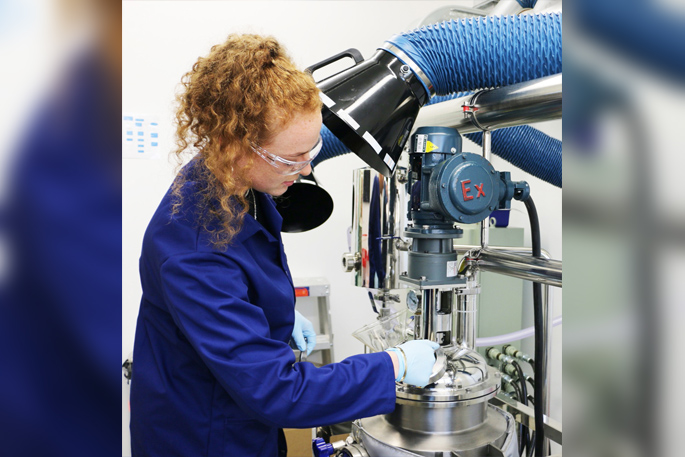Developing a new Maori-led export sector is the drive behind a new Bay of Plenty initiative that will extract and commercialise high value bioactive molecules from plant-based foods and horticulture for the global bioactive ingredient market.
This market is expected to be worth $51 billion by 2024 – prompting BOP-based Te Whai Ao Ltd to join forces with Hamilton-based nanotech business Ligar LP to develop a pipeline of high value bioactive molecules to capitalise on burgeoning consumer interest in bioactives and immunity-boosting supplements, alongside plant-based foods.
Last month, Te Whai Ao and Ligar signed a memorandum of understanding to collaboratively plan and develop a new entity called The Refinery, a business and facility focussed on the largescale extraction and commercialisation of bioactives.
The Bioactives Refinery Project stimulated a public online launch of the Solutions Lab led by Te Whai Ao.
This is first regional Federation of Maori Authorities’ member-led FOMA Innovation Solutions Lab, which is designed to provide Maori with new pathways into innovative enterprises and to increase participation in the hitech sector.
Te Awanui Huka Pak and Te Whai Ao chief executive Te Horipo Karaitiana says bioactives from our plant-based foods and horticulture present an opportunity to kick-start a new Maori-led export sector.
“Bioactives from horticultural waste streams will open up sustainable opportunities for Maori to increase the value of primary sector exports.
“The initiative is a perfect fit for our innovation company Te Whai Ao, which is focussed on growing revenue by expanding and deepening the impact of horticultural activities, and growing capability and enterprise for Maori. This initiative has the potential to grow a new generation of great jobs for Maori,” says Karaitiana.
“By partnering with Ligar we can combine their bioactive market knowledge, purification capability and processing know-how with Te Awanui’s capability in developing sustainable opportunities which safeguard and enhance the interests of the Taiao – our holistic environment including land, sea, air, water – and its people for future generations.”
The initial project focus is bioactive molecules present in biomass on Maori land. A detailed review of the bioactive content of waste streams from avocado and kiwifruit production has already begun, with other sectors to follow.
Ligar managing director Aiden Tapping says its world-leading commercial scale purification systems can uniquely extract high value molecules or contaminants that may only be present at the part-per-billion level.
“Our technology can turn horticultural waste streams into higher value products, very much in line with the Primary Sector Council and Government’s ‘Fit For a Better World’ vision to accelerate the productivity, sustainability and inclusiveness of the primary sector, to deliver more value for all New Zealanders.
“This project will directly contribute the goal of helping to lift export earnings by $10 billion per annum by 2030,” says Aiden.
Ligar’s Molecularly Imprinted Polymers, or MIPs, are ‘smart’ materials that have the ability to selectively capture and remove specific molecules or groups of molecules from fluids. Ligar makes MIPs in large volumes so they can be used efficiently at a commercial scale.
Ligar foundation CEO and chief exploration officer Nigel Slaughter says the outcome of the bioactive research underway will be fed into The Refinery.
“We will utilise Ligar’s novel extraction science to make high quality, ethical, bioactive extracts that are in demand around the world while embracing the Maori concept of Te Taiao, a respectful relationship with the natural world,” says Nigel.
“We’ve started creating our bioprospecting pipeline. We already have the ability to extract valuable molecules from hemp and kava and we’re in the discovery phase looking at the bioactive molecules in kiwifruit and avocado that should be possible to extract using Ligar’s MIPs.
“And, we have a growing list of targets to investigate. We will develop a short, medium and long-term list of bioactives opportunities, including assessing the feasibility of their commercialisation.”
Te Whai Ao and Ligar are now seeking foundation partners for The Refinery in the Bay of Plenty.
“A key to the commercial success of the project is our ability to extract molecules at scale, so we need to invest in a purpose-built facility.
“We’re also seeking industry partners to take the initial high-potential bioactives to market. We’re already in discussions with several parties in the nutraceutical and functional food markets, and we’re keen to talk with other potential partners who have an interest in other areas such native natural flora, fauna and fungi.”
The Bioactives Refinery Strategy was developed with co-investment from the MBIE Maori Commercial Advisers and Vision Matauranga funds.
To find out more about this project, see: http://www.teawanui.co.nz And: http://ligar.nz



0 Comments
Leave a Comment